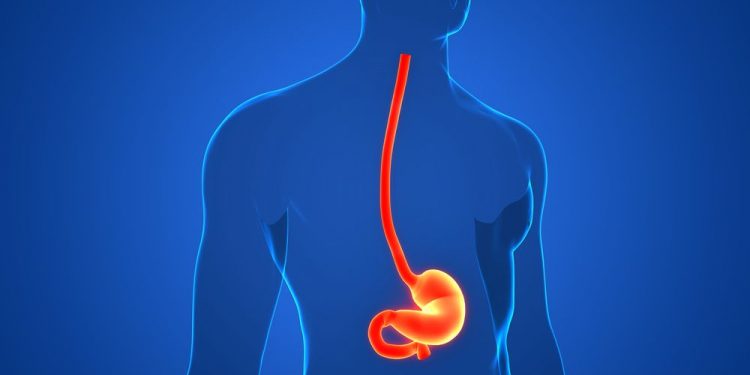The esophagus (a muscular tube that connects the throat to the stomach) can be injured in several ways. The most common cause of damage to the esophagus is a chronic condition called gastroesophageal reflux disease, or GERD. This occurs when a muscle at the bottom of the esophagus fails to close properly and allows stomach contents, including acid, to leak into the esophagus and irritate its lining. Acid reflux can also lead to scarring of the esophagus, called esophagitis. Other causes of esophagitis include infection, medications, caustic substances or a weakened immune system.
Infections of the esophagus can be caused by bacteria, viruses or fungi. These infections can occur in people with a weakened immune system such as people with HIV or AIDS, cancer, diabetes or other chronic illnesses. Viral esophagitis can also be caused by certain medications, including antibiotics like doxycycline or tetracyclines and antifungal drugs such as fluconazole. Fungi can be the cause of a fungal esophagitis known as candida esophagitis.
People can injure their esophagus by swallowing something that is too large or hot, by forcing food down with too much force, by vomiting violently or by pushing on the esophagus with teeth. These injuries can create scar tissue that narrows the esophagus, creating a stricture. Other causes of esophagitis are medications, such as cyclosporine or azathioprine, acidic foods and drinks, raw or hard foods and medicines such as doxycycline, tetracyclines or potassium chloride that interfere with cellular function, causing an irritant reaction.

If you think you have a damaged esophagus, make an appointment with your doctor. Be prepared to provide your complete medical history and list all of your prescription and over-the-counter medications. You may also need to undergo a number of tests. These may include:
Your doctor will probably order an upper GI series or barium swallow, which involves drinking a solution that coats the esophagus and shows up as white on X-ray. An endoscopy with a camera attached to a flexible tube is another way to examine your esophagus. During the procedure, the doctor can take a biopsy of the esophagus lining to determine what is causing it. Your doctor might also suggest dietary changes, such as avoiding spicy, acidic or fatty foods and taking smaller bites of food and chewing more thoroughly. If a medication is the source of inflammation, he or she might recommend that you switch to a different drug or to a liquid form of the medicine. If there is severe narrowing of the esophagus, your doctor might suggest surgery to open the esophagus. If you have a weakened immune system, your doctor might prescribe steroids or a monoclonal antibody, such as dupilumab, that blocks the action of certain proteins that trigger inflammation.









